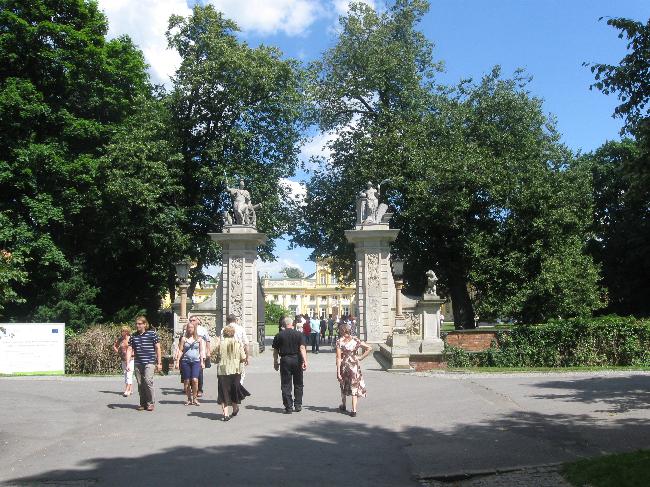By Jaya Ramachandran | IDN-InDepthNews Report
PARIS (IDN) – In a carrot-and-stick approach, the 34-nation Organisation for Economic Co-operation and Development (OECD) has commended Poland for having combined robust economic growth with reducing some of the pressures on its environment since it joined the European Union in 2004. At the same time, it asks Poland to decrease its economy’s reliance on fossil fuels and make growth greener.
The report also praises the eastern European country for having brought environmental laws closer to European norms. But it adds that Poland still has the fourth most carbon-intensive economy of OECD countries, however, due to the dominance of coal in its energy mix.
Greenhouse emissions from road transport are up nearly 70 percent since 2000 and rising as higher incomes enable more people to drive cars.
According to the report, Poland has increased its use of biomass but fossil fuels still make up 91 percent of its energy supply versus an EU average of 73 percent, and it remains the EU’s top producer and consumer of coal. The Review recommends investing in cleaner energy and transport, and reviewing how energy is taxed and subsidised to help shift to an economy less reliant on fossil fuels.
The OECD’s Environmental Performance Review of Poland finds the country has made visible progress in decoupling greenhouse gas emissions, air pollutants, waste generation and water withdrawal from economic growth, as well as surpassing its Kyoto targets. Over 2000-2012, Poland’s greenhouse emissions rose just 1 percent alongside a 56 percent jump in gross domestic product (GDP).
The Kyoto targets relate to the Kyoto Protocol, named after a Japanese city. It is an international treaty, which extends the 1992 United Nations Framework Convention on Climate Change (UNFCCC) that commits State Parties to reduce greenhouse gases emissions, based on the premise that (a) global warming exists and (b) man-made CO2 emissions have caused it.
According to the report, “When Poland joined the European Union, its economy and environmental management made impressive progress,” said OECD Environment Director Simon Upton, presenting the Review in Warsaw. “Poland now needs to build on that progress and decide how it is going to make the transition to a resource-efficient, low-emission economy.”
Poland’s CO₂ emissions were 0.42 tonnes/GDP unit in 2012 versus an OECD average of 0.31 tonnes, notes the report. Poland also had Europe’s highest level of air pollution from fine particulates in 2012. Outdoor air pollution causes thousands of deaths every year by worsening breathing and circulatory disorders. Indoor air pollution from inefficient coal heaters also creates serious health risks.
Given that the bulk of EU cohesion and structural funds invested in Poland since 2007 went into road transport, the Review suggests prioritising rail infrastructure with future allocations.
The Review praises the sustainable forest management practices that have allowed Poland to increase timber harvesting while not compromising its natural capital and conserving forest biodiversity. However, to achieve its ambitious commitment under the EU’s Natura 2000 protected areas network, Poland will have to better align policies affecting land use.
The Review welcomes a major waste management reform in 2013 that offered a better basis for providing household waste services and increasing the separate collection of recyclable waste. It recommends strengthening municipal-level waste capacity and data collection.
The Review’s 28 recommendations include: adoption of measures to reduce environmental damage from coal use, and shifting investment incentives towards cleaner energy sources and forms of transport.
The report also calls for: a review of green taxes and charges to ensure they properly price environmental damage; tax on diesel at the same rate as petrol and removal of exemptions on coal taxes; making local land use plans obligatory and consistent with nature protection; and introducing mechanisms for monitoring the results of environmental policies. [IDN-InDepthNews – 12 May 2015]
Photo: The gateway leading to Wilanow Palace in Warsaw | World Factbook
2015 IDN-InDepthNews | Analysis That Matters
Send your comment | Subscribe to IDN newsletter
Follow us on Twitter and Facebook:
http://twitter.com/InDepthNews
http://www.facebook.com/IDN.GoingDeeper

